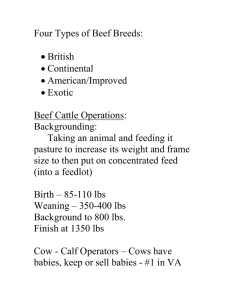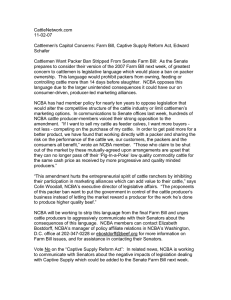Iowa Farmer Today 12-15-06
advertisement
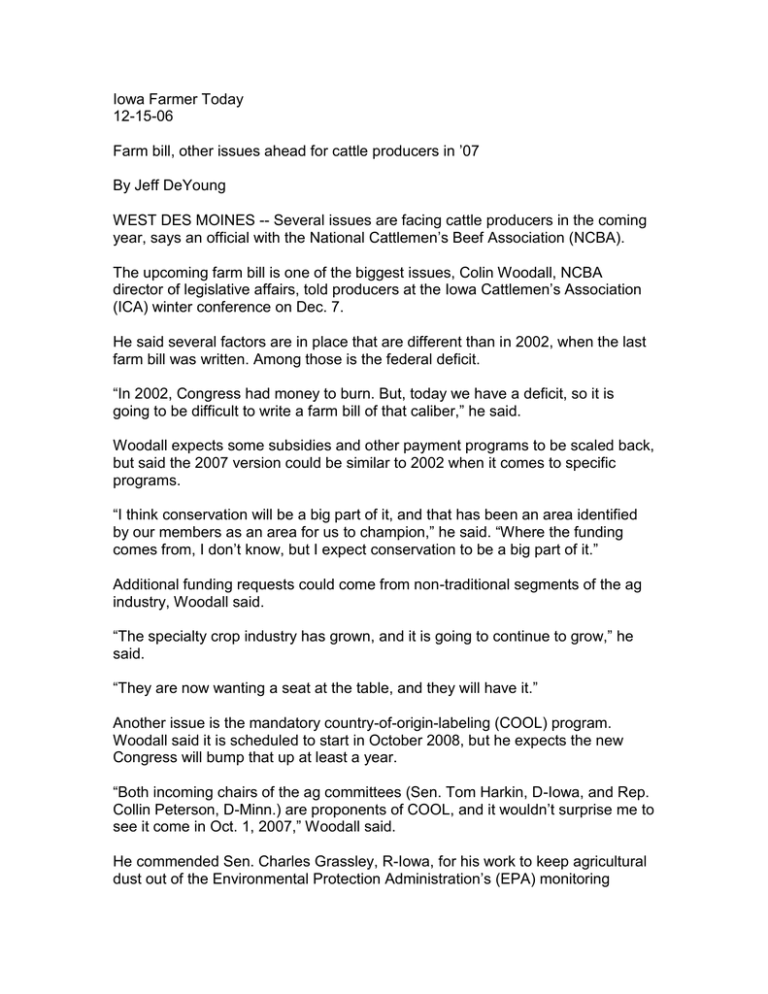
Iowa Farmer Today 12-15-06 Farm bill, other issues ahead for cattle producers in ’07 By Jeff DeYoung WEST DES MOINES -- Several issues are facing cattle producers in the coming year, says an official with the National Cattlemen’s Beef Association (NCBA). The upcoming farm bill is one of the biggest issues, Colin Woodall, NCBA director of legislative affairs, told producers at the Iowa Cattlemen’s Association (ICA) winter conference on Dec. 7. He said several factors are in place that are different than in 2002, when the last farm bill was written. Among those is the federal deficit. “In 2002, Congress had money to burn. But, today we have a deficit, so it is going to be difficult to write a farm bill of that caliber,” he said. Woodall expects some subsidies and other payment programs to be scaled back, but said the 2007 version could be similar to 2002 when it comes to specific programs. “I think conservation will be a big part of it, and that has been an area identified by our members as an area for us to champion,” he said. “Where the funding comes from, I don’t know, but I expect conservation to be a big part of it.” Additional funding requests could come from non-traditional segments of the ag industry, Woodall said. “The specialty crop industry has grown, and it is going to continue to grow,” he said. “They are now wanting a seat at the table, and they will have it.” Another issue is the mandatory country-of-origin-labeling (COOL) program. Woodall said it is scheduled to start in October 2008, but he expects the new Congress will bump that up at least a year. “Both incoming chairs of the ag committees (Sen. Tom Harkin, D-Iowa, and Rep. Collin Peterson, D-Minn.) are proponents of COOL, and it wouldn’t surprise me to see it come in Oct. 1, 2007,” Woodall said. He commended Sen. Charles Grassley, R-Iowa, for his work to keep agricultural dust out of the Environmental Protection Administration’s (EPA) monitoring program. “Right now, just about every feedlot is out of compliance, and that’s not a good thing for our industry,” Woodall said. “They tell us it will focus on more urban areas, but there’s nothing to keep them out of rural areas. There are no studies show ag dust causes health problems.” Another EPA issue involves an attempt to place manure under Superfund regulations. Lawsuits have been filed by municipalities in Texas and Oklahoma, arguing manure is dangerous, Woodall said. “We need to make sure we fight to keep manure out of that law because it’s not just a threat to our feedlot industry. Once a precedent is set, everyone is going to jump on it.” Woodall also encouraged producers to watch export markets. He said while some U.S. beef is making its way into Japan, South Korea appears intent on keeping U.S. beef out. “We’ve had three shipments, and all have been rejected because of pieces of material they are finding that range in size from a half of a grain of rice to a half of a peanut,” Woodall said. “It’s quite obvious Korea does not want to play by the rules. All of the beef coming out of the U.S. is BSE-free, and right now they are playing games.” He said the NCBA has contacted President Bush to encourage the administration to become more heavily involved in the export issue. Woodall said South Korea is seeking a free trade agreement with the United States, and said the NCBA does not support that effort until beef exports are allowed. The United States is working with Japan to increase the age limit to beef from cattle 30 months of age or younger, rather than the current 20 months. he added. “When we get beef over there, we can’t keep it on the shelves, so I think we have proven that Japanese consumers want it,” he said. The ethanol boom will also affect the cattle industry, said Iowa Secretary of Agriculture-elect Bill Northey. Northey said he believes the state can increase the number of cattle fed in the state because of the readily available ethanol co-products. “There are opportunities there because of the energy business, and I will actively encourage that as secretary of agriculture,” he said. Water and air quality are other issues facing cattle producers, said Wendy Wintersteen, dean of Iowa State University’s College of Agriculture. “We have some great programs, but that only gets us to 30 percent of what the EPA wants,” she said. “If you don’t think they will hit you on the side of the head with a 2x4, you’re wrong. Water- and air-quality issues are the biggest threat to animal agriculture right now.” Wintersteen encouraged continued industry support of researchers who are working on those issues. “Without innovation, we can’t move forward at the pace we need to move,” she said.

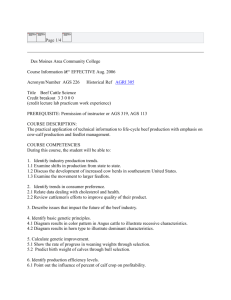
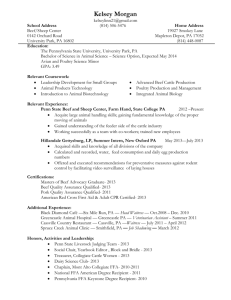
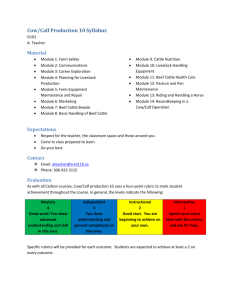
![[headline] “Be Alert and Adjust”](http://s3.studylib.net/store/data/007598880_2-17ea4c48d88a73b333ab9af1230125a2-300x300.png)
